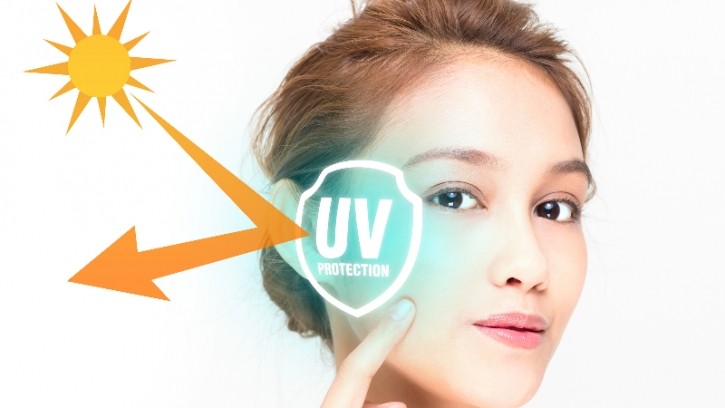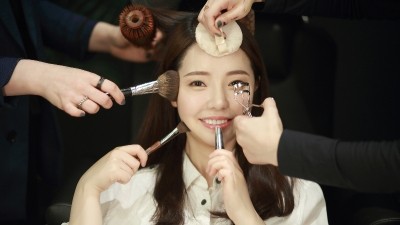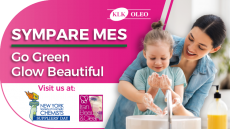Kolmar Korea to develop sun care products using newly discovered skin microbiome-derived Lactobacillus probiotic

The process of skin ageing is influenced by internal and external factors, including exposure to UV radiation, which results in photoageing and manifests as skin issues such as wrinkles and discolouration.
The skin microbiome, a diverse community of microorganisms on the skin’s surface, plays a crucial role in barrier function and can be affected by factors like humidity and acidity (pH).
Probiotics have been studied for their potential to enhance skin health by regulating the skin microbiome.
While they have been found to mitigate oxidative stress, suppress inflammation, and maintain the skin’s extracellular matrix, research on probiotics derived from human skin is limited, and there is no established product for preventing photoageing.
To verify the protective capabilities of human skin-derived probiotics against UV radiation, a study funded by Kolmar Korea was conducted.
It was found that Kolmar Biome 20 (KOLBM20), which belongs to the Lactobacillus genus in the skin microbiome, could play an important role in addressing the effects of UV radiation on the skin’s ageing process.
Named by the company when it was first discovered, KOLBM20 appears most frequently on the skin of people in their 20s, and gradually decreases with age.
The findings published on peer-reviewed journal Current Issues in Molecular Biology showed that KOLBM20 reduces the expression of skin elasticity genes (matrix metallopeptidase 1 or MMP-1), or collagen, even when UV rays penetrate the skin, and consequently delays skin ageing.
Following this, the firm intends to leverage KOLBM20 in the development of sun care products.
“As interest in photoageing caused by UV rays is increasing, we analysed its correlation with the skin microbiome. We will take the lead in creating a groundbreaking product by stably combining KOLBM20 with sun care formulations.
“The strategy is to develop products optimised for suppressing photoageing by applying KOLBM20 in different ways for each age group,” Kolmar Korea said.
Underlying pathways
In the study, the KOLBM20 strain was isolated from the facial skin of individuals in their 20s. Comparative analysis of 16S rRNA gene sequences revealed that it shares the closest genetic affinity with Lactobacillus iners DSM13335(T), with 99.2% similarity.
It is well-documented that UV radiation leads to increased MMP expression and premature ageing of the skin.
To investigate the anti-wrinkle activity and inhibitory effect of KOLBM20 on MMP-1 expression, as well as the underlying pathways, various in vitro experiments were performed.
“Our findings revealed that strain KOLBM20 lysate, when incubated for 24 hours after pretreatment, effectively inhibited UVB-induced MMP-1 expression. This effect persisted after 48 and 72 hours of incubation.
“Metabolite analysis indicated a significant presence of uracil in KOLBM20. Previous research has suggested that uracil has the capacity to inhibit MMP-1 protein and mRNA expression, aligning with our results,” the researchers wrote.
In addition, exposure to UVB induces the production of TNF-α, IL-1β, IL-6 and PGE2, most of which are cytokines associated with inflammation that can affect the structural integrity of the skin, contributing to the development of wrinkles.
As such, this study also focused on the impact of KOLBM20 on reducing these pro-inflammatory factors.
“Inhibiting these cytokines is crucial in the early suppression of skin inflammation, which is a fundamental cause of skin ageing.”
To clarify the molecular mechanism responsible for diminishing inflammatory mediators in cells stimulated by UVB, the researchers initially concentrated on the mitogen-activated protein kinase (MAPK) signalling pathway.
During the study, it was observed that the extracellular-signal-regulated kinase (ERK) and c-Jun N-terminal kinase (JNK) signalling pathways were involved in UVB-induced MMP-1 expression.
“Similar to previous research, we noted the activation of ERK and JNK kinases within 30 minutes of UVB irradiation, followed by a return to baseline levels in cells. We hypothesise that KOLBM20’s inhibition of MMP-1 expression is linked to the suppression of these pathways. It is also plausible that the inhibition is mediated, at least in part, by uracil.
“Therefore, we conclude that KOLBM20 holds promise as a novel therapeutic agent for the prevention and treatment of skin photoageing caused by UV radiation.”
Source: MDPI
https://doi.org/10.3390/cimb46010033
“Suppression of UVB-Induced MMP-1 Expression in Human Skin Fibroblasts Using Lysate of Lactobacillus iners Derived from Korean Women’s Skin in Their Twenties”
Authors: Jin-Sung Lee, et al
![Toyo Sugar enzymatically modified resveratrol to make it water-soluble and more bioavailable. [Getty Images]](/var/wrbm_gb_food_pharma/storage/images/_aliases/wrbm_medium/publications/cosmetics/cosmeticsdesign-asia.com/headlines/formulation-science/toyo-sugar-produces-water-soluble-resveratrol-for-cosmetics/17378607-1-eng-GB/Toyo-Sugar-produces-water-soluble-resveratrol-for-cosmetics.jpg)

![Shiseido has sets its sights on burgeoning markets in Asia for expansion. [Shiseido]](/var/wrbm_gb_food_pharma/storage/images/_aliases/wrbm_medium/publications/cosmetics/cosmeticsdesign-asia.com/article/2024/04/09/shiseido-targets-rapidly-growing-markets-india-thailand-vietnam-to-drive-growth/17319305-1-eng-GB/Shiseido-targets-rapidly-growing-markets-India-Thailand-Vietnam-to-drive-growth.jpg)
![Sephora’s exit from South Korea leaves a vacuum highlighting need for a diversity of brands and retail channels in the market. [Getty Images]](/var/wrbm_gb_food_pharma/storage/images/_aliases/wrbm_medium/publications/cosmetics/cosmeticsdesign-asia.com/headlines/business-financial/sephora-s-withdrawal-from-korea-leaves-market-less-diverse-than-ever-experts/17318960-1-eng-GB/Sephora-s-withdrawal-from-Korea-leaves-market-less-diverse-than-ever-experts.jpg)





![Indus Valley is working to corner 30% of India's online premium boxed hair colour market. [Indus Valley]](/var/wrbm_gb_food_pharma/storage/images/_aliases/wrbm_tiny/publications/cosmetics/cosmeticsdesign-asia.com/article/2024/07/26/indus-valley-aims-to-secure-30-of-india-s-online-premium-hair-colour-market-with-organic-offerings/17594932-5-eng-GB/Indus-Valley-aims-to-secure-30-of-India-s-online-premium-hair-colour-market-with-organic-offerings.jpg)
![[Getty Images]](/var/wrbm_gb_food_pharma/storage/images/_aliases/wrbm_tiny/publications/cosmetics/cosmeticsdesign-asia.com/china/china-focus-latest-developments-in-china-s-booming-beauty-market25/17606695-1-eng-GB/China-focus-Latest-developments-in-China-s-booming-beauty-market.jpg)
![Kosé has launched makeup brand Visée in Singapore as part of plans to reinforce its position in SEA. [Visée]](/var/wrbm_gb_food_pharma/storage/images/_aliases/wrbm_tiny/publications/cosmetics/cosmeticsdesign-asia.com/headlines/business-financial/visee-singapore-kose-aims-to-enhance-brand-visibility-in-sea-with-new-launch/17587264-1-eng-GB/Visee-Singapore-Kose-aims-to-enhance-brand-visibility-in-SEA-with-new-launch.jpg)
![ble C&C is set on reinforcing its competitiveness in China’s beauty market. [Missha]](/var/wrbm_gb_food_pharma/storage/images/_aliases/wrbm_tiny/publications/cosmetics/cosmeticsdesign-asia.com/headlines/business-financial/able-c-c-aims-to-strengthen-competitiveness-in-china-through-online-expansion-kol-collabs/17591626-1-eng-GB/Able-C-C-aims-to-strengthen-competitiveness-in-China-through-online-expansion-KOL-collabs.jpg)

![LG H&H genetic study says 23 genetic regions affect natural skin tone. [Getty Images]](/var/wrbm_gb_food_pharma/storage/images/_aliases/wrbm_tiny/publications/cosmetics/cosmeticsdesign-asia.com/article/2024/07/23/lg-h-h-discovery-of-genetic-skin-tone-factors-in-east-asians-potentially-key-to-skin-radiance-developments/17587210-1-eng-GB/LG-H-H-discovery-of-genetic-skin-tone-factors-in-East-Asians-potentially-key-to-skin-radiance-developments.jpg)

![DR.CI:LABO expects brand-supplier partnerships gain more public prominence as consumers interest in skin care grows online. [Dr.Ci:Labo]](/var/wrbm_gb_food_pharma/storage/images/_aliases/wrbm_tiny/publications/cosmetics/cosmeticsdesign-asia.com/article/2024/07/22/brand-supplier-partnerships-will-come-to-the-fore-amid-the-online-skin-care-landscape-dr.ci-labo/17576755-1-eng-GB/Brand-supplier-partnerships-will-come-to-the-fore-amid-the-online-skin-care-landscape-DR.CI-LABO.png)


